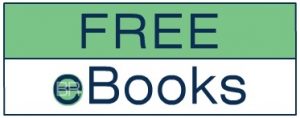Many thanks to Jorgen for dropping by with a link to the Telegraph.co.uk and a chilling story by Adrian Hon about the current state of eBook Piracy. (At least in his opinion. I, for one, think the wider public is less comfortable with piracy than Hon speculates.) I do agree, however, that the reasons for the piracy are as old as the music industry’s near-death-experience.
Publishers charge too much for eBooks and refuse to see that they cannot graft their outmoded business models and profit structures onto the digital age. Until that changes, piracy has a reason to exist.








